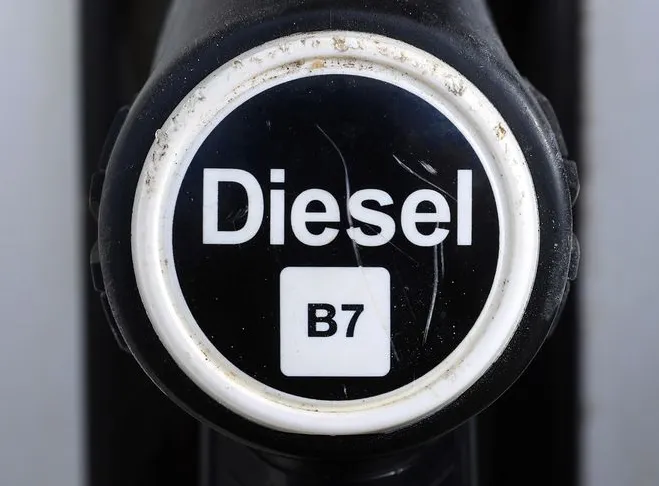Diesel fuel is commonly used in various applications, including transportation, agriculture, and industry, due to its energy efficiency and availability. However, when diesel fuel becomes old or contaminated, it can pose risks to both human health and the environment if not disposed of properly. This article provides comprehensive guidance on the safe and responsible disposal of old diesel fuel, emphasizing the importance of adhering to legal regulations and minimizing environmental impact.
Understanding the Risks of Improper Diesel Fuel Disposal
Improper disposal of diesel fuel can lead to significant environmental hazards, including soil and water contamination. Diesel contains hydrocarbons that can persist in the environment, harming aquatic life and disrupting ecosystems. Additionally, diesel vapors are flammable and can pose health risks if inhaled. Therefore, it is crucial to handle and dispose of diesel fuel with care.
Legal Regulations Governing Diesel Fuel Disposal
In many countries, including Japan, the disposal of diesel fuel is strictly regulated to protect public health and the environment. Regulations dictate where and how diesel fuel can be disposed of, the necessary permits for disposal, and the penalties for non-compliance. It is essential to familiarize yourself with local laws and guidelines to ensure that you are disposing of diesel fuel in a legal and environmentally responsible manner.
Methods for Disposing of Old Diesel Fuel
There are several safe and environmentally friendly methods for disposing of old diesel fuel:
1. Contact Certified Disposal Facilities
Certified disposal facilities are equipped to handle hazardous waste, including diesel fuel. These facilities have the necessary permits and trained personnel to process and dispose of diesel fuel safely. To find a certified disposal facility near you, contact local waste management authorities or search online directories.
2. Utilize Oil Recycling Centers
Many oil recycling centers accept used diesel fuel for recycling. Recycling involves filtering and processing the fuel to remove contaminants, making it suitable for reuse or blending with other fuels. This option helps conserve natural resources and reduces environmental impact. To locate a recycling center, inquire with local automotive shops or consult online resources.
3. Participate in Hazardous Waste Collection Events
Communities often organize hazardous waste collection events where residents can safely dispose of materials like old paint, chemicals, and fuels. These events are typically held periodically and are advertised through local government websites, community bulletin boards, and social media. Before attending, check the event’s guidelines to ensure that diesel fuel is accepted and to learn about any specific requirements.
4. Return Fuel to Suppliers
Some fuel suppliers offer take-back programs that allow customers to return unused or old diesel fuel. These programs are particularly useful for businesses or individuals who have large quantities of fuel that are no longer needed. Contact your fuel supplier to inquire about take-back options and any associated procedures.
5. Engage Professional Waste Oil Haulers
Licensed waste oil haulers specialize in collecting and disposing of hazardous materials, including diesel fuel. They can pick up the fuel directly from your location and transport it to a certified disposal facility. This option is convenient for businesses that generate large amounts of diesel waste. To find a reputable waste oil hauler, ask for recommendations from industry professionals or consult local environmental agencies.
Steps for Properly Storing Diesel Fuel Before Disposal
If immediate disposal is not possible, proper storage of diesel fuel is essential to prevent spills, leaks, and degradation:
Use Appropriate Containers: Store diesel fuel in containers specifically designed for fuel storage. These containers should be made of materials resistant to corrosion and capable of safely containing flammable liquids.
Label Containers Clearly: Ensure that all containers holding diesel fuel are clearly labeled with the contents and any associated hazards. This helps prevent accidental misuse and informs handlers of potential risks.
Store in a Secure Location: Keep containers in a secure, well-ventilated area away from heat sources, sparks, or open flames. The storage area should be equipped with spill containment measures to address any accidental leaks.
Regularly Inspect Containers: Check containers periodically for signs of leaks, damage, or degradation. If a leak is detected, take immediate steps to contain it and prevent further contamination.
Conclusion
Disposing of old diesel fuel requires careful consideration to ensure safety and environmental protection. By utilizing certified disposal facilities, recycling centers, hazardous waste collection events, supplier take-back programs, or professional waste oil haulers, you can dispose of diesel fuel responsibly. Always adhere to legal regulations and follow best practices for storage and handling to minimize environmental impact and protect public health.
Related topics:

